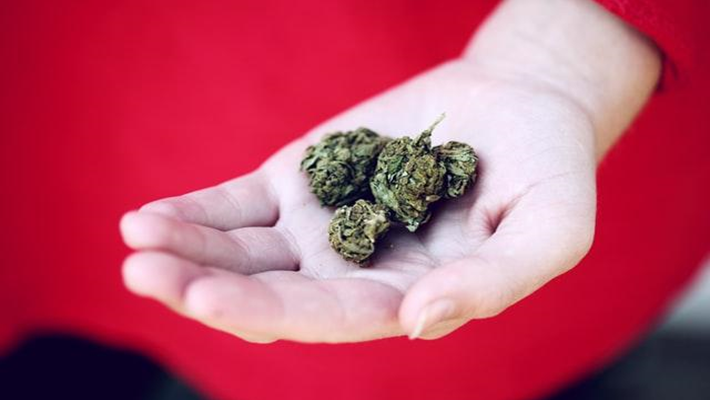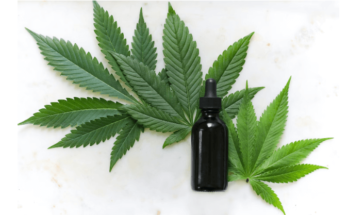As legal cannabis becomes a reality in more states, there has been a noticeable shift in the conversation. Whereas the focus used to be on “getting baked,” people are now paying a lot more attention to how cannabis can improve their quality of life. Interestingly, researchers and consumers alike have taken a major interest in mental health possibilities.
Could cannabis hold promise for treating panic disorders, depression, OCD, PTSD, and other common mental health conditions? If so, it could be a game changer for how we address mental illness. But what does the research say?
Does Cannabis Treat Mental Health Conditions?
Whenever we examine the medical potential of cannabis, we have to take the data with a grain of salt. While much of the research is promising and even exciting, it’s still relatively limited (albeit getting better). Because cannabis remains a Schedule 1 Controlled Substance in the U.S. (and because similar prohibitions remain in other countries), it has been extremely difficult for clinical researchers to carry out the kinds of large-scale, double-blind studies that are needed to achieve a full picture of cannabis’s potential. At a research level, we know far more about the effects of aspartame in Diet Coke than we know about the effects of THC in Granddaddy Purple.
Still, a growing body of cannabis research into mental health disorders does exist, and it has some intriguing conclusions. Consider a few examples.
- PTSD. A lot of state medical marijuana programs recognize post-traumatic stress disorder as a qualifying condition, and for good reason. The research into cannabis for PTSD is especially promising. One 2014 study published in the Journal of Psychoactive Drugs found a 75% reduction in PTSD symptoms among cannabis patients.
- Depression. Admittedly, the data has been somewhat mixed when assessing the effectiveness of cannabis for depression. This may be because depression can have different underlying causes, and cannabis is more effective at addressing some of these causes than others. Consider one University of Buffalo study from 2015. The researchers found that cannabis appears most effective for depression when the cause is underlying stress.
- Anxiety. Numerous studies have suggested that THC may help to reduce anxiety when consumed at the proper dosage. For example, a 2017 review from the University of Washington concluded that THC can reduce anxiety symptoms at low doses while increasing anxiety symptoms at high doses. This seems to lend credence to the potential value of microdosing THC to support mental health.
- Obsessive compulsive disorder. OCD affects the same part of the brain that triggers fear, anxiety, and similar sensations. Some research indicates that the endocannabinoid system may be instrumental in managing OCD symptoms by modulating these types of stress responses.
In all of these areas, it’s important to stress that more research is needed. However, the more we learn about the effects of cannabis on the body’s endocannabinoid system, the more it appears that THC may have profound implications for managing mental health.
Does CBD Treat Mental Health Conditions?
While much of the research has focused largely on THC, it’s important to also address the possible CBD benefits for mental health. Cannabidiol (CBD) has been getting a lot of attention over the past few years. Advocates claim that this smaller cannabinoid—found in cannabis and hemp plants—offers many of the same therapeutic benefits of whole-plant cannabis but without the psychoactive element.
Research into CBD specifically is still in its early stages, but this compound appears to have some benefits of its own. For example, one large-scale case series from 2019 (published in the Permanente Journal) examined 103 anxiety patients over 3 months and found that 79% of subjects experienced a reduction in anxiety within the first month—and that reduction was maintained throughout the course of the research. Other research has found CBD to be potentially effective for social anxiety disorder and depression.
What Does the Future Hold for Cannabis in the Mental Health Sector?
Taking control of one’s mental health requires a multi-pronged approach. Often, it requires changing habits, identifying triggers, undergoing psychotherapy, and finding the right medicinal treatment. For a growing number of people, that treatment involves the use of cannabis, and anecdotally, it’s making a difference in a lot of people’s lives.
Given what we already know about the potential benefits of cannabis, it’s very much within the realm of possibility that we’ll see cannabis-based mental health treatments approved and regulated by the FDA within the next few years.
With more and more states legalizing the herb, some analysts estimate that cannabis will see federal legalization within the next decade. And the FDA has already approved a number of cannabinoid-based treatments like Marinol, Cesamet, and Epidiolex. So it’s not outlandish to think that we may soon have access to pharmaceutical-grade THC treatments for our anxiety, OCD, and PTSD.
And even if cannabis-based preparations don’t come to conventional pharmacies any time soon, these remedies are already available in an increasing number of markets—in plant form, edible form, vape form, and even capsule form. Many states even offer cannabis delivery, so you literally don’t even have to step foot in a dispensary.
The more we come to understand the benefits of these remedies, the better off we’ll be in the long run.




